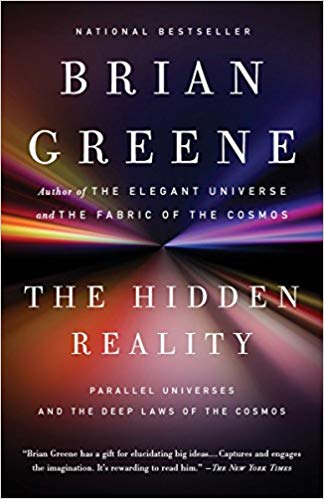The Hidden Reality Audiobook by Brian Greene

text
The job Brian Greene set himself in his book was to describes a number of concepts of multiverses (since certainly one isn’t sufficient) that physicists have created throughout the years. The Hidden Reality Audiobook by Brian Greene Free. On the way, he presents us to a variety of theoretical suggestions in physics, including an excellent explanation of string concept and why it’s relevant, and a support of physicists doing too much theoretical work.
The most basic multiverses ideas are based on the suggestion that littles the universe are too far away to see, and also relocating additionally away, so they are efficiently different worlds. One variation involved quantum weirdness, which leads to different littles deep space expanding at different speeds, to ensure that somebody inside a bubble that’s increasing swiftly can’t see the little bits outside their bubble. Therefore, the multiverse is a Swiss cheese of worlds.
One more collection of multiverse concepts come from string theory: some presume the existence of multiverses floating about on m-branes in higher dimensions, periodically ramming each other and generally jumping around as well as having a good time. For me, these are one of the most fascinating concepts, that there are additional dimensions that we can’t see, and all sorts of things could be taking place in them.
The next idea that Greene offers on his multiverse conveyor belt is the many-worlds interpretation of quantum technicians: the idea that if we do not observe a fragment, it is not in one location, but inhabits a probabilistic fuzz. When we observe it, a new world stands for every feasible setting of the fragment. This elevates, for me, one of the problems of a book like this. The real scientific research is so complicated and also esoteric that a description for the public need to make some simplifications. All well and good, however right here I was fretting that the explanation that’s provided is always in terms of a discrete number of outcomes. Nonetheless, room etc. are continuous, so exactly how do we deal with that? Greene does offer a response (sort of) in an end-note, but this description depends on an understanding of Hilbert rooms, which is instead past me. If any individual would love to clarify in the comments what’s going on, I would certainly be grateful.
Ultimately, Greene relocates to talking about suggestions that seem additionally away from real multiverses. Several of these– the holographic and supreme worlds– seem to be a lot more conceptual than real multiverses. The Hidden Reality Audio Book Download. He likewise goes over the Matrix theory, i.e. that we are done in a simulation, as well as thus that we might (once we have big enough computer systems) develop numerous simulations of universes. And also, so we might ourselves be staying in a big simulation. Well, I might be– the rest of you are simply innovations of The Designer to entertain me.
One of the themes Greene comes back to is that for mostly all multiverse concepts, we do not know how to evaluate the ideas: by their actual nature, the multiverses are self-contained. So just how can we evaluate these theories? Certainly, can they be evaluated? His answer is that it’s possible we can work out how to examine them, however inevitably he argues that this may not also be required: by their actual nature these concepts indicate multiverses that we might never reach. Yet we should count on the mathematics (as well as, he argues, some large advances in physics have happened with trusting the mathematics), and also approve that these anticipated multiverses exist. I’m not convinced: if these mathematical concepts can’t be examined, then, for me, they aren’t scientific research, however mathematics. This doesn’t imply that physicists need to quit working on these problems, yet rather that even more of them should relocate into maths divisions. Greene wants to redefine scientific research to let these suggestions in, but if he does that, where do we draw a line?